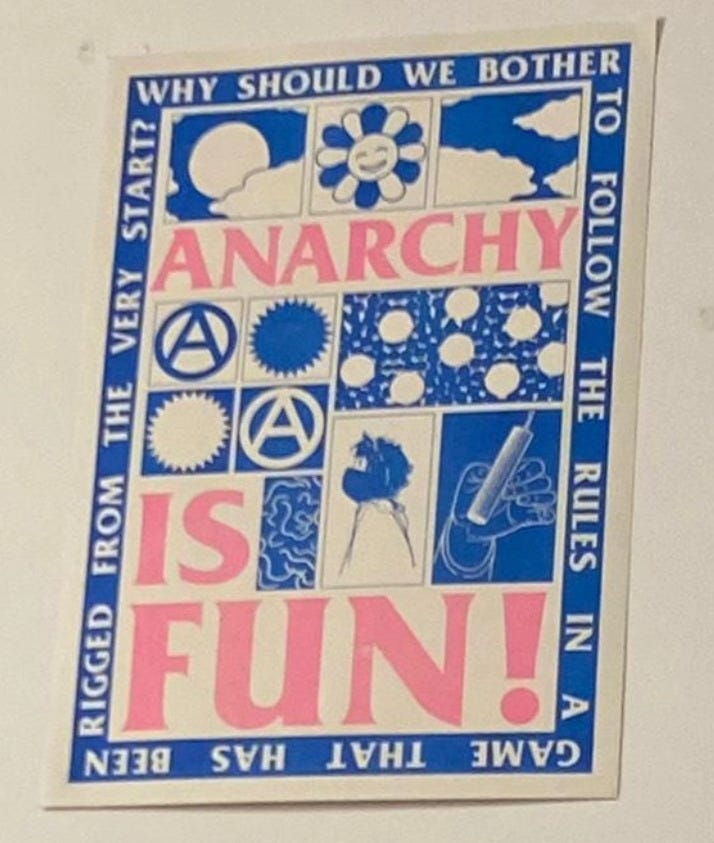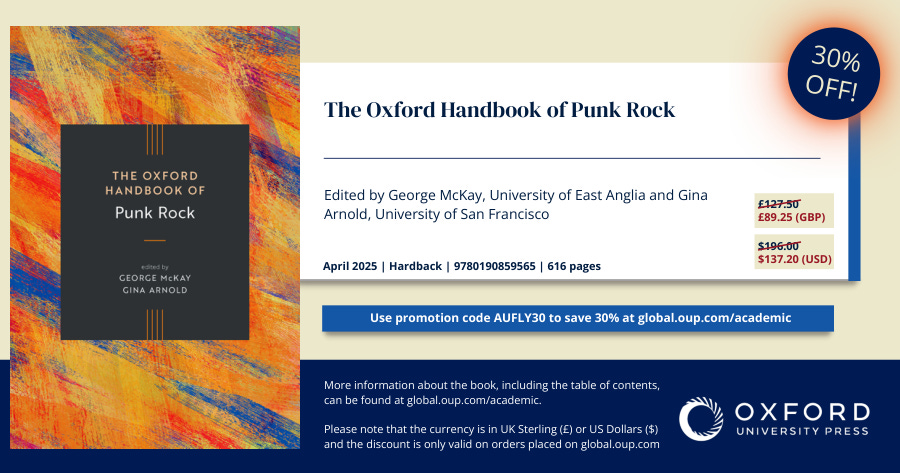Last Saturday was No Kings Day in America, and Indivisible, the organization behind the No Tyrants protest (not No Kings, because England HAS a King and they kind of like him) had asked us Americans to come to their protest dressed as clowns. Instead, the Victoria Line was packed with Queens – fans of, that is – since Beyonce was playing the 3rd of her four shows at Tottenham Hotspur Stadium up the line that evening. All week long at concert going time, I’d been jammed in with concert goers dressed in cowboy hats and hot pants, boots and bling, and I swear I saw one woman who’d done her nails as actual spurs.
I wish I could say I saw clowns and cowboys - and maybe a few Pitbulls, since he was playing London also, and his fans also dress up — on the same train, but that was not the case. It happened in my imagination though. Pitbulls, clowns and cowboys, all heading up to the US Embassy, screaming things like ‘Down With the Tyrant’, and ‘Resist’. “Who runs the world? Girls,” I thought.
In real life, the stop I got off with was only filled with fancy people in wedding finery at those ritzy new condo-palaces along the river at Vauxhall. A short walk along the river towards Battersea Power Station brought one to the permanent pro-Palestine protest, tents, flags, coffee house, and then to the Embassy itself, a building some might recognize from the TV series “The Diplomat.” A smallish crowd had gathered there to express their displeasure with the ways things are at home. It felt weird to be abroad on that day, but the US Embassy crowd made it feel less so. Some were ex-pats, but many were tourists who’d determinedly found their way south of the river, dressed in touristy things like Cubs ball caps and stupid t-shirts and carrying fanny packs or those swing-y neck laniards with their passports in them. Someone was handing out yellow balloons decorated like chickens, or you could also get a white one decorated like a big baby, but I had to get rid of mine because it kept bopping people on the head. I overheard some stupid British tech-looking guy say loudly into his phone as he walked past, “It’s some protest, I guess these are people from the far left and far right” and I wanted to slap him. This isn’t the far-anything, I wanted to say to him. This is just…US.
Presently I had to leave the protest, as I had an appointment with a book shop for my own book launch for The Oxford Handbook of Punk. The book came out last month, and is quite literally unaffordable – so much so that the bookstore where my launch was being held, Hausman’s, declined ordering any copies. Why publish something unaffordable, you might ask? Good question! The book is intended for university libraries, who – I guess ? -- can afford it? I don’t know. Academic publishing is a racket. My hope is that it will get released in paperback, when I will hold a larger book launch where people can actually buy the thing. At this one, I just waved around my own copy – which weighs a TON - and read from it. And this is what I (more or less) said:
Thank you for coming to my book launch! In the seven years it has taken for the book to come to fruition, many people have questioned whether a book on punk is necessary or relevant. So it feels appropriate that this launch is being held on No Kings Day because it shows that so many things in this book are not as outdated as they might seem at first glance. We even have a chapter which deals with the idea of ‘punk’ being applied to DT. In 2018, when we received the chapter, my co-editor George McKay, who is English, said, ‘you Americans are all obsessed with him, but by the time this comes out, this era will be over and this chapter will be outdated.’ That made sense, but, well: ALAS!
Here is what that author, Daniel Traber, wrote six years ago, in his chapter, “You Ain’t No Punk, You Punk: On Semiotic Doxa, Postmodern Authenticity, Ontological Agency, and the Goddamn Alt-Right”:
Traber: "Conservatism is the new punk rock." James Parker is one of the earliest to proffer this thesis in The Atlantic October 2016 issue: Trump has "co-created a space in American politics that is uniquely transgressive, volatile, carnivalesque, and (from a certain angle) punk rock." But the idea really gained traction in early 2017 when young conservatives started enthusiastically using the line. Michelle Goldberg quoted James O'Malia, an alt-right college student attending the Conservative Political Action Conference, expressing this sentiment which she translated as his saying today's right is "edgy and subversive." There were YouTube videos, tweets, and memes (conspiracy-mogul Alex Jones's protégé Paul Joseph Watson was prominent among them). Scott Galupo used it to draw comparisons between Trump and punk on matters of amateurism, challenging orthodoxies (like punk did musically), and general taboo smashing. The ultra-right British National Party had tried to apply the label to themselves back in 2010 when spokesman Simon Darby announced, "The BNP are like the political Sex Pistols." They later updated their self-promotion pitch in line with the mood of 2017: "Nationalism is the answer… and it can’t get cooler than the BNP--true rebels WITH a very worthy Cause!" (Watts) (Are you convinced? No, me neither.) Plenty of people opposed this besmirching of punk with the alt-right stain but it was too late. Then a smug sense of validation arose after former Sex Pistols singer John Lydon spoke positively of Donald Trump on Good Morning Britain--where he accused the left of falsely labeling Trump a racist--and on America's National Public Radio: "I think he's absolutely magnificent. He's a total cat amongst the pigeons" (del Barco 2017).
I wish that wasn’t relevant, but sadly, it still is.
This book also has sections on punk’s impact on history, on design, on identity, on its global influence, and lastly, on politics. But I think that punk rock’s biggest impacts can’t even be measured, they trickled so slowly into our psyches and changed so much about the way we approach things. And I want to add that, even today, especially today, many of its core concepts are badly needed.
My own chapter in the handbook is on punk nostalgia. The following passage was written six years ago, though I think it pertains to today.
“The term nostalgia, coined in the 17th century, initially referred to an emotion associated only with soldiers far from home. After the French Revolution, the concept became a term used by people who missed not only places but less explicit things like lost communities and ancient regimes. Today people like to wallow in their memories, which can be poked and disturbed by official memory-makers like museums and monuments. But nowhere does the memory reassert itself more forcefully – more purely, I like to think - than it does in music. Only through music we can re-activate the most fragile of our feelings: melody alone has a direct line into our heart.
And this, I think, explains why punk and everything it stands for is an everlasting phenomenon, why it resists its own to implode, why again and again it forces its fans and practitioners to come to Las Vegas and immediately turn themselves into pillars of salt. Because outside the gates of this concert, the Trump era is raging in all its horror. You can’t look up at the buildings without thinking about how a sharpshooter killed 400 people from one of those windows earlier in the year. You can’t hear the singer from NOFX mock that event without shuddering. You can’t feel the almost synthetically hot breeze that wafts out of the air- conditioned edifices here without thinking about global warming.
How did K Punk put it? “A portal is itself intensifying, there is a mutual process of libidinization between the portal and what it opens onto... Also - portals function most powerfully when they are transversal connectors between different cultural domains, e.g. fiction and music.” Well, the portal has now yawned open, stretching between cultural domains of Las Vegas (fiction) and Punk Rock Bowling (music), and all us humans are flowing in and out of it…
…Gathered here tonight then, as it is every night, is the raw material of Vegas’s famous slogan, “What happens in Vegas, stays in Vegas,” and it is against this background that those who have come to go Punk Rock Bowling really stand out. Whatever their drinking or drug-preferences may be or have been in the past, they pale in comparison to the stag boys and the low/high rollers and the big-bellied men with dead eyes and crazy t shirt slogans (“Fiscally Republican/Socially Democrat/Sexually Liberal”) who haunt this area. In Vegas, the sexual politics of punk rock (such as it is) seems positively equitable: punk rock women are allowed to bear their own stories on their own natural bodies, to dress in ways that please themselves, to act out fantasies that don’t seem bounded by those of the men they are with. Also, their tattoos no longer stand out in a world which has proudly inked its own ass with its foibles: compared to the tramp stamps and Disney characters laid across the skin of practically all of Christendom, all punk rockers are righteous, and authentic, and sincere and unafraid. .
But the key word here is, In Vegas. What about outside, in the real world? Over the past 50 years, punk rock has positioned itself by turns as anarchic, apathetic, apocalyptic, apolitical, even, at Punk Rock Bowling and elsewhere in the past, antifascist. On the Sunday evening of Punk Rock Bowling, Shawn Stern, one of the Festival’s founders and a member of the punk band Youth Brigade, made a short but extremely eloquent speech asking participants to put aside any indifference they might feel towards the mainstream, to help defeat the fascist regime Americans live currently under.
“Participating in society is a political act,” he said. “We are currently facing a fascist propaganda machine. Punk rock has always been about questioning authority, and now more than ever, we have to step up and fight.”[1] Stern’s plea is understandable, given the time and place he made it, but it doesn’t acknowledge that, although punk today is often equated with anti-fascism, rock against racism, and other liberal and progressive causes, it also has a long history of racial exclusivity and gender inequity which needs to be acknowledged if not embraced. The basic conundrum of punk is that its foremost ability has always been not to legitimate, but to destabilize. When poised as cultural heritage -- as at Punk Rock Bowling, as throughout the Punk London exhibits, and perhaps even as the subject of an Oxford Handbook – it starts to lose that ability. In the words of Greil Marcus, writing about the effect of the Sex Pistols music, “Unfulfilled desires transmit themselves across the years in unfathomable ways, and all that remain on the surface are bits of symbolic discourse, deaf to their sources and blind to their objects.” These, he continues, “are a last link to notions that have gone under the ground, into a cultural unconscious” (1989:308). At these heritage events, these desires rise to the surface, where we are forced to grapple with them over and over again, for better or worse.“
###
In the end, book launches like this one are largely ceremonial but thanks to everyone who attended. As I said previously, this book is pretty unaffordable, but if it sells enough copies in hardcover, the Oxford University Press may consider putting it out in paperback, in which case it might make it to a bookstore near you. So if you want to help that happen, please request that your local library or university library purchase it.
I am also including a voucher for 30% off below in case anyone reading it is interested in making a substantial investment in the book. Thanks, as always, for bearing with me!
[1] As reported in my own blog: http://foolsrushinredux.blogspot.com/2018/05/apocalypse-now.html










Hi Gina!
Gloria Steinem said: "Nostalgia is a form of obstrucurism." She was referring to the women's movement. Do you think it applies to punk rock? IDK if you dealt with this, but it seems to me that musical nostalgia leaves people stuck with the music of their teenage or college years. They associate it with a time when they were free of responsibility, living among many crushable/fuckable people, and doing all sorts of "wild" stuff. For instance, if one lost their virginity while listening to Elvis Costello in 1978, (possible, but unlikely) they listen to that era music/ People who keep exploring music in their 30s, 40, 50s, et al are a small minority of people. They're probably the audience for your book.
Best to you.
Dan weiss
.
I don't want to be too much of a smarty pants, but 60 people were killed in LV, and 413 wounded. That's probably how the mix up occured. https://tinyurl.com/2jp52hsr